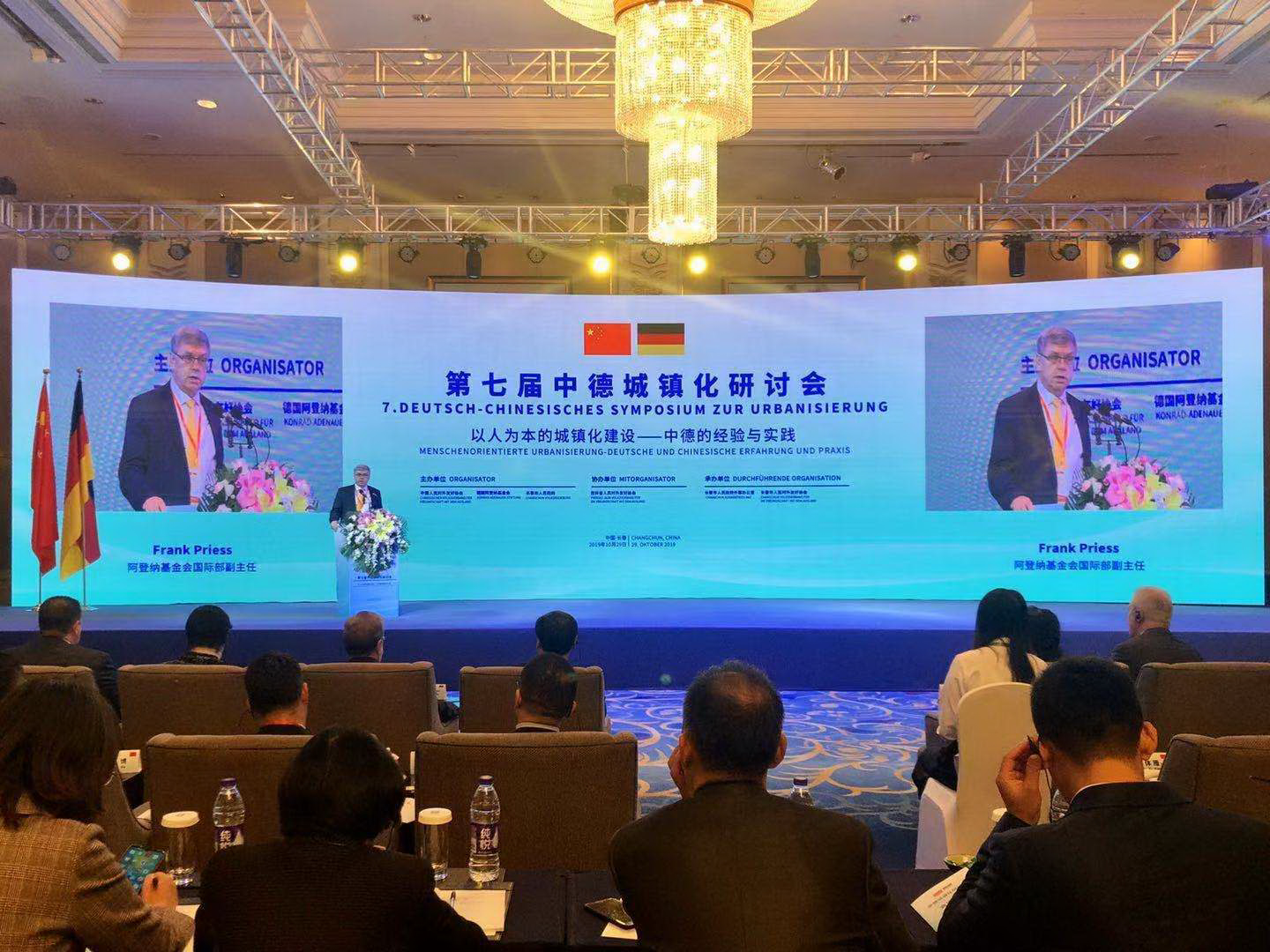CHANGCHUN, Oct. 31 (Xinhua) -- The 7th Sino-German Symposium on Urbanization, themed on "people-oriented urbanization construction -- experience and practice of China and Germany", was held Tuesday in Changchun, provincial capital of northeast China's Jilin Province, gathering experts to share related experience and tap into potential cooperation between China and Germany on urbanization.
According to Song Jingwu, Vice President of the Chinese People's Association for Friendship with Foreign Countries (CPAFFC), by the end of 2018, the urbanization rate of China's permanent resident population reached 59.58 percent from the 10.64 percent in 1949. Over the past 70 years, China has experienced the largest and fastest urbanization in the world.
People-oriented urbanization requires the balance between ecology and cities, science and technology and people's livelihood, government and market as well as other aspects, noted Song at the meeting, adding that Germany's experience in urbanization with the urbanization of people as a focus is worth learning by China.
Jia Lina, deputy mayor of Changchun City, said that Changchun is steadily advancing the new-type urbanization promoted by the new round of national policies of revitalizing the old industrial bases in Northeast China, and the city is willing to take this symposium as an opportunity to deepen the urbanization exchange with Germany.
Bernhard Kaster, a former member of the German Bundestag (the national parliament of Germany), believed that the main challenge facing China's urbanization is the urban-rural dual structure. He proposed that China and Germany should strengthen related exchanges and cooperation by taking advantage of the rich political, economic and other dialogue mechanisms between the two countries.
Rolf Reinhard, an economic official of the German embassy in China, pointed out that Changchun boasts green space resources, and building the city into a more attractive investment destination not only requires hardware upgrading but also environmental improvement to raise the competitiveness of soft environment.
During the symposium, China and Germany reached an initial consensus on pushing up green, circular and low-carbon development during the process of urbanization. (Contributed by Guan Ziru, Sun Yixuan, edited by Gu Shanshan)




 A single purchase
A single purchase









